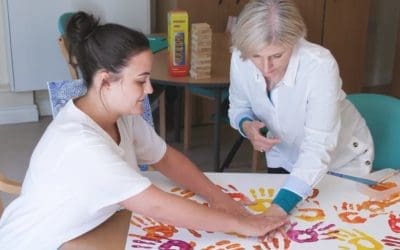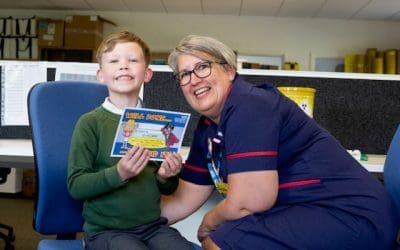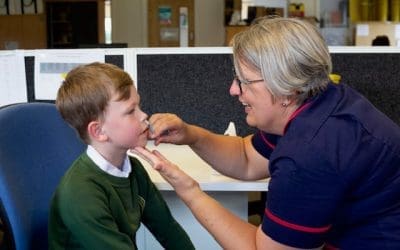16 Days of Action commences on Monday 25 November – International Day for the Elimination of Violence against Women – and runs until Tuesday 10 December, Human Rights Day.
Tying in with the campaign, 25 November is also White Ribbon Day – which seeks to end male violence against women. The 16 Days campaign aims to highlight the link between abuse and violence against women and human rights and encompasses other significant dates, such as Thursday 1 December, World AIDS Day.
Anyone can be a victim of domestic abuse, regardless of age, gender, ethnicity, race, sexuality, sexual orientation, disability, religion or socioeconomic status. However, domestic abuse is a gendered issue; women are much more likely to be victims than men, and are far more likely to experience repeated and severe forms of abuse, including coercive and controlling behaviour, sexual violence and violence which results in injury or death.
The global 16 Days campaign is an organising strategy for individuals and groups around the world to call for the elimination of all forms of gender-based violence against women and to:
- raise awareness about gender-based violence against women as a human rights issue at local, national, regional and international levels
- strengthen local work around gender-based violence against women
- establish a clear link between local and international work to end gender-based violence against women
- provide a forum in which organisers can develop and share new and effective strategies
- demonstrate the solidarity of women around the world organising against gender-based violence against women
- create tools to pressure governments to implement commitments to eliminate gender-based violence against women.
What is domestic abuse?
The Domestic Abuse Act 2021 defines domestic abuse as the behaviour of a person (A) towards another person (B) is domestic abuse if:
- A and B are each aged 16 or over and are personally connected to each other, and
- the behaviour is abusive.
Behaviour is ‘abusive’ if it consists of any of the following: physical or sexual abuse; violent or threatening behaviour; controlling or coercive behaviour; economic abuse; psychological, emotional or other abuse.
This behaviour can consist of a single incident or a course of conduct. Further detail is provided to detail how ‘personally connected’ would be defined and children are now recognised as victims of domestic abuse here: Domestic Abuse Act 2021 (legislation.gov.uk)
It is important to note that domestic abuse is complex and there is overlap in the different types of abuse; it could consist of one or more forms of abuse. Domestic abuse can happen to anyone.
Reclaim the Night: Friday 29 November
Gloucestershire Rape and Sexual Abuse Centre (GRASAC) are holding its Reclaim the Night march in Cheltenham on Friday 29 November. Find out more.
Hope House Sexual Assault Referral Centre
Hope House Sexual Assault Referral Centre (SARC) joins you in standing up, speaking out and saying NO to violence against women!
Hope House SARC is a service in Gloucestershire offering emotional and practical support as well as medical care to anyone who has experienced sexual violence or sexual abuse.
Clients are offered its services based on their individual needs and can choose to use as much or as little of the SARC’s service as they wish.
Clients can access Hope House SARC via the police and other professionals. Clients can also contact the SARC directly for confidential advice or to arrange an appointment without police involvement, by calling 0300 421 8400.
The SARC also offers information and support to friends and family, and is available 24 hours a day, 365 days a year.
To find out more visit the Hope House SARC website
Support available in Gloucestershire
- Gloucestershire Domestic Abuse Support Service (GDASS)
www.gdass.org.uk | 01452 726570 (Mon-Fri 9am-5pm) - Gloucestershire Rape and Sexual Abuse Support (GRSAS)
www.glosrasac.org | 01452 526779 - Stroud Women’s Refuge
www.stroudwomensrefuge.org | 01453 764385 - The Men’s Advice Line
mensadviceline.org.uk | 0808 801 0327 - Support for young people (under 16)
www.gdass.org.uk/support-for-young-people




